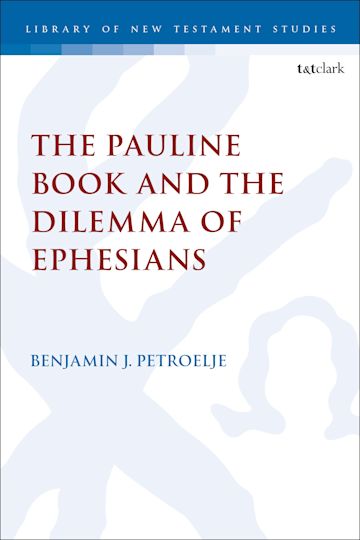This product is usually dispatched within 3 days
Free US delivery on orders $35 or over
You must sign in to add this item to your wishlist. Please sign in or create an account
Benjamin J. Petroelje argues that how one reads Ephesians is a function of deeper questions about how to read the Pauline book. Petroelje suggests the contemporary consensus-that Ephesians depicts development of/away from the “real Paul”-is largely a construct of modern criticism, rooted in shifting strategies about how to read a letter collection that developed in the 19th-century.
Using Ephesians 3:1-13 as a point of analysis, Petroelje theorizes that the text's “image of Paul” not only anticipates recent revisionist interpretations of Paul's Jewish identity and gentile gospel, but also holds together tensions in the collection itself surrounding these questions. By analysing ancient letter collections beside their own hermeneutical priorities, and applying this method to the late-antique and modern reception of the corpus Paulinum, Petroelje is able to historicize the origins of the split of Paul's corpus, revealing the constructed nature of the critical consensus on Ephesians and the effect that such modern reading strategies have on interpreting the letter. Urging a return to reading Ephesians alongside Pauline co-texts, Petroelje advocates for Ephesians as a crucial source for the study of Paul, whether Paul wrote it or not.
| Published | Apr 18 2024 |
|---|---|
| Format | Paperback |
| Edition | 1st |
| Extent | 232 |
| ISBN | 9780567703750 |
| Imprint | T&T Clark |
| Dimensions | 9 x 6 inches |
| Series | The Library of New Testament Studies |
| Publisher | Bloomsbury Publishing |
This is certainly a fascinating and innovative study that challenges the scholarly consensus by advocating a return to the collection as the primary co-texts for reading Ephesians. ... [I]ts conclusions deserve to be pondered carefully.
Religious Studies Review

This book is available on Bloomsbury Collections where your library has access.
Free US delivery on orders $35 or over
Your School account is not valid for the United States site. You have been logged out of your account.
You are on the United States site. Would you like to go to the United Kingdom site?
Error message.

